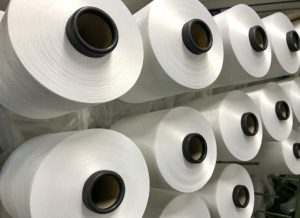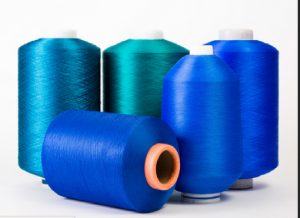As the human population expands itself and continues to devour the land, water and natural resources, it is important that we remind ourselves that we are only an insignificant part of a vastly complex, organic mosaic which is composed of myriad life forms. All those life forms depend on mother Nature and her gifts for their survival.
Decade after decade we extract and mine new raw materials to create goods that eventually end up in landfill. Their decomposition can take centuries and cause immense land degradation.
The one stop answer to these issues is to recycle and reuse the ‘waste’ raw materials to form a highly efficient restorative system.
Nylon fiber is essentially made from petroleum. For a few reason locked deep in the science of polymer chemistry, nylon is more difficult to recycle than polyester which is also obtained out of petroleum.
After years of research, development and testing, mankind could discover some recycled Nylon Fibers that were suitable for crafting apparels, upholstery and lifestyle goods. They passed rigorous tests and over years the standards of their quality improved.
A majority of the recycled nylon that is used, is obtained from the post-industrial waste fiber, yarns collected from spinning factories, and waste collected from the weaving mills that can be processed into reusable nylon fiber.
The usage of recycled Nylon, benefits the Planet in the following ways:
- By incorporating recycled nylon we can reduce our dependence on petroleum as a source of producing the raw material.
- It reduces waste and hence prolongs the landfill life. It also reduces toxic emissions from the incinerators.
- It encourages a new recycling streams for nylon products that are no longer usable.
- It causes less air, water, and soil pollution when compared to using non-recycled nylon.
The problem with nylon recycling
The biggest issue with recycling nylon is that follows a complicated and expensive process. Unlike other recyclable raw materials such as glass and metal, nylon is not melted down with an increasingly high temperature. The melting of Nylon requires lower heat so that some bacteria and other contaminants can persist in the substance, after combustion. Cleaning of the material prior to melting is also vital. This makes the practice time-consuming and expensive.
On contrary, the manufacturing of new plastic and polymer products is relatively cheap and lowers the production cost drastically. In most of the cases, companies simply prefer discarding the old waste and purchasing new materials.
Due to these reasons, recycling nylon is not quite as commonplace practice as the recycling of various raw materials such as metals and glass.
So, what needs to be done?
Despite its lengthy and expensive process, recycling Nylon must become an industrial norm. On an individual level, we must gain utmost utilization from every single product, before recycling and reusing it’s raw materials.
“What would change the recycling scene is if we were charged per pound for all waste,” suggested Stephen Johnston, associate professor of plastic engineering at UMass Lowell. “Or if companies had to take back part of what they produced.”
Leading lights from the industry:
As mentioned earlier, recycling Nylon is not preferred commonly but several futuristic companies have taken the much important steps towards sustainability.
Some of the most ecological companies with respect to recycled nylon include:
- Bureo, a California-based start-up manufactures skateboards and sunglasses out of recycled fishing nets.
- Aquafil, an Italian carpet manufacturer recycles the nylon used in their carpets to create new materials which they term as Econyl.
- Outerknown, an LA based swimwear fashion label founded by pro-surfer Kelly Slater, uses Econyl extensively in it’s wide range of products.
- Patagonia, another global swimwear brand, utilizes recycled nylon in more than 50 products, including 100% chemically recycled nylon in its Torrentshell jackets
Although Nylon is just one facet of a huge industry, David Stover of Bureo points out that if we adopted an approach like these companies, waste could be reduced drastically.
“This is really the future of manufacturing,” he commented. “We have to start reassessing waste as value, and Patagonia gets that. Nylon is just one material in our lives; imagine if we did this for all the materials we use.”




